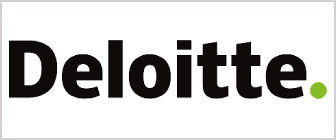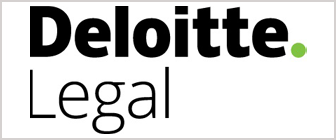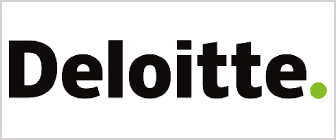Interview with Carlos Serrano Palacio, tax prevention and tax controversy lead partner, Deloitte Spain
What is the most significant change to your region/jurisdiction’s tax legislation or regulations in the past 12 months?
On 9 June 2021, Royal Decree 399/2021 of 8 June was published in the official state gazette, which makes specific changes to the Mutual Agreement Procedure (MAP) regulations in the field of direct taxation. The following purposes must be highlighted:
- The incorporation of the European Union (EU) directive in the field of tax dispute resolution mechanisms into domestic regulations;
- The introduction of specific measures derived from the final report on the Organisation for Economic Co-operation and Development (OECD)/G20 Base Erosion and Profit Shifting (BEPS) action 14 on dispute resolution mechanisms; and
- The resolution of certain issues identified during the course of MAPs to ensure greater legal certainty.
What has been the most significant impact of that change?
Legal certainty in cross-border transactions within the EU has improved. Taxpayers in Spain will have more alternatives for effectively resolving tax disputes with other EU member states.
The scope of the new regulations is wider than the previous ones, opening the door for new types of applications not limited to transfer pricing issues. Arbitration is also open to non-transfer pricing issues.
How do you anticipate that change impacting your work and the market moving forwards?
These changes will undoubtedly help to increase the number of applications for MAPs in Spain, taking into account that the new regulations provide more guarantees to the taxpayers. The new field for non-transfer pricing applications, which could end in arbitration processes, may reduce the number of court litigations in favor of mutual agreement procedures.
How has this changed the way you offer tax advice?
There is now a more agile instrument (with more guarantees and predictability) available that increases the vector of decisions in the face of potential double taxation. The teams responsible for advising on tax and non-transfer pricing issues must be conscious of the new field for advice.
What potential other legislative/regulatory changes are on the horizon that you think will have a big impact on your region/jurisdiction?
Two new temporary taxes are being discussed; one would subject to tax the net commissions and interests of the enterprises of the bank industry, and the other one would affect the energy industry.
OECD Pillar 2 and the EU Directive proposal on Global Minimum Tax are also on the agenda, as Spain has publicly endorsed these projects.
What are the potential outcomes that might occur if those changes are implemented?
Considering the public reactions in the media of some of the affected entities of the industries, the new temporary taxes could be followed by litigation.
Pillar 2 will likely give rise to corporate restructurings to accommodate some multinational enterprise (MNE) structures to the new scenario. Repatriation of retained earnings may also take place once the tax advantages of maintaining them abroad are reduced or eliminated.
Do you think that change will have a positive effect on both your practice and the wider regional/jurisdictional market?
A rise in controversy and litigation is likely to occur. Advice in mergers and acquisitions (M&A) transactions as a consequence of the legislative changes may be demanded as well.
The likely repatriation of retained earnings as a consequence of Pillar 2 measures may positively impact the EU market.
Are there any regulatory/legislative changes you believe should be implemented in your region/jurisdiction?
After the strengthening of the legislative and regulatory bodies with the vast number of changes in the last year and the ones that are expected in the near future, the biggest challenge at present consists of providing tax administrations with enough resources to get the best out of the system, in particular in relation to the cooperative relationship with the taxpayers.
How do you believe those changes would help improve the tax landscape in your market?
The improvement of the cooperative relationship would increase legal certainty and allow more efficient use of the limited resources available to tax administrations.
How are issues surrounding the taxation of the digital economy affecting your work?
Due to the one-stop shop (OSS) regime, an increasing demand for legal advice regarding compliance obligations has been detected. The EU Directive on Certain Requirements for Payment Service Providers’ transposition raises uncertainties regarding data protection and the exchange of information.
Even if there are a few Spanish groups that might be in scope, they are closely monitoring developments on OECD Pillar 1 to determine if they could be impacted. Many national and foreign companies with digital businesses are already paying digital services tax.
How would you describe the tax authorities’ approach in your region/jurisdiction?
Regarding indirect taxes, a rise in information requests and tax audits in relation to marketplaces has been detected. Tax audits are expected to start soon in relation to the recent tax on certain digital services.
In the transfer pricing area, detailed functional and value chain analyses are being required by the Spanish Tax Administration in its tax audits.
This document has been prepared solely for the purpose of publishing in the 2023
ITR World Tax Guide and may not be used for any other purpose. This document and
its contents may not be reproduced, redistributed or passed on, directly or indirectly,
to any other person in whole or in part without Deloitte’s prior written consent.
Deloitte refers to one or more of Deloitte Touche Tohmatsu Limited
(“DTTL”), its global network of member firms, and their related
entities (collectively, the “Deloitte organization”). DTTL (also referred
to as “Deloitte Global”) and each of its member firms and related
entities are legally separate and independent entities, which cannot
obligate or bind each other in respect of third parties. DTTL and each
DTTL member firm and related entity is liable only for its own acts
and omissions, and not those of each other. DTTL does not provide
services to clients. Please see www.deloitte.com/about to learn more.
This communication contains general information only, and none of
Deloitte Touche Tohmatsu Limited (“DTTL”), its global network of
member firms or their related entities (collectively, the “Deloitte
organization”) is, by means of this communication, rendering
professional advice or services. Before making any decision or taking
any action that may affect your finances or your business, you should
consult a qualified professional adviser.
No representations, warranties or undertakings (express or implied)
are given as to the accuracy or completeness of the information in
this communication, and none of DTTL, its member firms, related
entities, employees or agents shall be liable or responsible for any
loss or damage whatsoever arising directly or indirectly in connection
with any person relying on this communication. DTTL and each of its
member firms, and their related entities, are legally separate and
independent entities.
© 2022. For information, contact Deloitte Global.



